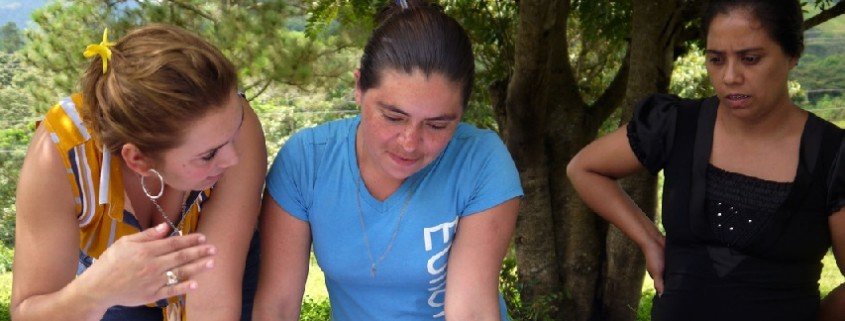
Kimberley Flores
Laughter and the thwack of wood against papier machete fill the air in Bálsamo, a community near Matagalpa.During the last year, 15 youth in the community met twice a week through CEPAD’s psychological and social program to learn about the environment, practice public speaking, and develop interpersonal skills like leadership, patience and respect. Today, they celebrate with an end of year presentation and piñata.Kimberley Flores, a student in the program, said she felt a change in her self and the other students after completing the program.“The other kids used to make fun of me because I’m fat, but now we respect each other and I have more confidence,” Kimberley said.
She plays more and is healthier too, added her mom Caridad. The program encourages kids to eat nutritious food and play sports, and the psychological and social program leaders in many communities also organize baseball and soccer teams.
With your support, CEPAD works with more than 600 youth every year through its psychological and social program. Your donations and partnership make a huge difference in the lives of kids in Nicaragua who otherwise don’t have access to sports or other after school programming.
CEPAD’s psychological and social program aims to work with young people in communities who are at risk of drugs and alcohol abuse, physical abuse at home, low school achievement and other challenges. Older teens in the community lead the groups of 7- to 12-year-olds in twice-monthly workshops.
The teachers receive training from CEPAD staff on how to identify abuse and depression in children, how to teach values, and how to creatively engage children in activities related to themes like the environment.
“A lot of the kids used to be really shy, but now they will sing in front of the group or lead a prayer,” said Diana Hernandez, 16, who leads the group in Bálsamo.
The skills and knowledge students gain include concrete behaviors, like how to protect the environment by not littering, and broader concepts like leadership and optimism.
“Before, if I had a test in school I would always be pessimistic and not do well,” said Katherine Tatiana Luquez Gutierrez, 12. “Now I know how to have a good mind set and I do a lot better in school.”
We are so thankful for all supporters like you who make it possible for students including Katherine and Kimberley to become better students and leaders. Your pledge today will ensure we can continue to empower youth around Nicaragua!


